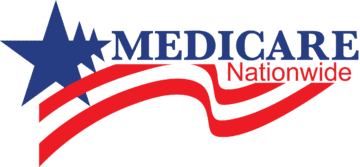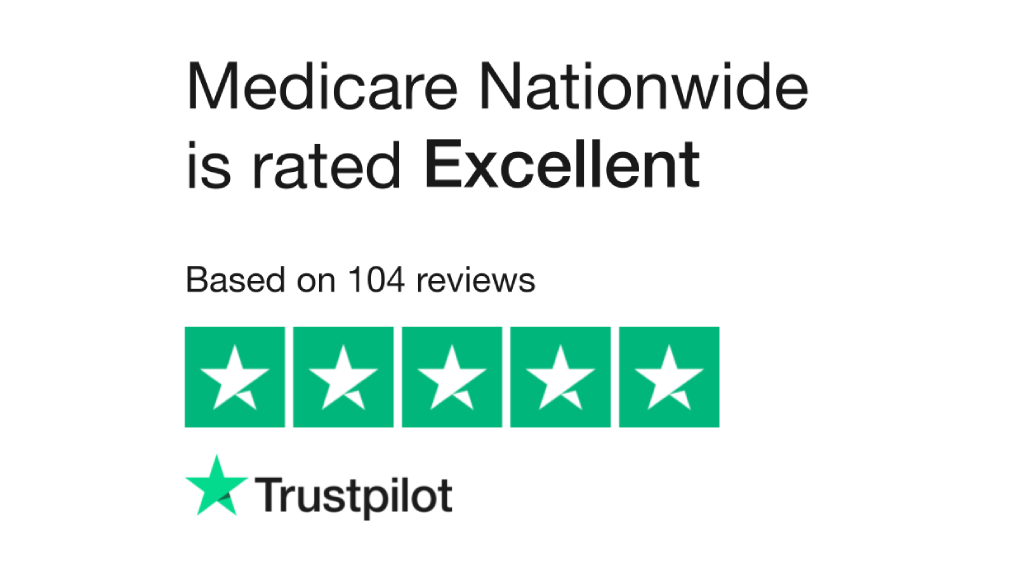Understanding Part D Formulary Exceptions
Part D formulary exceptions refer to requests made by Medicare beneficiaries or their representatives to obtain coverage for a prescription drug that is not included on their plan’s formulary or to waive utilization management requirements, such as step therapy, prior authorization, or quantity limits, for a formulary drug.
These exceptions are necessary for Medicare beneficiaries because they ensure access to medically necessary medications that may not be available on the plan’s formulary or may require additional steps to access due to utilization management requirements. Without these exceptions, beneficiaries may face barriers to accessing essential medications, which can negatively impact their health outcomes.
Situations where a formulary exception might be needed include:
- When a prescribed drug is not included in the plan’s formulary.
- When all covered Part D drugs on any tier would not be as effective or would have adverse effects for the beneficiary.
- When the prescribed drug is necessary due to dose restrictions on covered drugs, which may be less effective.
- When the alternatives listed on the formulary or required by step therapy are likely to be less effective or have adverse effects for the beneficiary.
To request a formulary exception, the beneficiary’s prescriber must submit a supporting statement to the plan sponsor, explaining why the requested drug is medically necessary for the beneficiary’s condition. The supporting statement can be submitted verbally or in writing and must provide a detailed justification for the exception.
Once the plan sponsor receives the supporting statement, they must provide a written notice of their decision within 24 hours for expedited requests or 72 hours for standard requests. If the request involves payment, the plan sponsor must provide notice of its decision within 14 calendar days. If the coverage determination is unfavorable, the decision will contain information on how to file a request for redetermination with the plan sponsor.
Exception Requests
An exception refers to a decision made about your coverage, and there are two types namely Tier Exceptions and Formulary Exceptions. You will need a supporting statement issued by your prescriber in submitting this request. An exception may be valid for the rest of the year.
- Tier Exceptions : If your health plan uses different cost tiers for drugs, they must provide tiering exceptions allowing you to access a non-preferred drug at a lower cost. This allows you to pay less for certain medications based on their tiering structure and available alternatives for your condition.
The plan may apply certain limitations, such as allowing tiering exceptions for brand name drugs to the lowest cost sharing associated with brand name alternatives, tiering exceptions for biological products to the lowest cost sharing associated with biological alternatives, and tiering exceptions for non-preferred generic drugs to the lowest cost sharing associated with either brand or generic alternatives. These limitations determine how tiering exceptions apply based on the type of drug and its alternatives within the plan’s structure.
NOTE: Insurance plans are not obliged to provide tiering exceptions for brand name drugs or biological products if lower-cost alternatives, such as generic or authorized generic drugs, are available at a different cost-sharing level.
- Formulary Exceptions : The plan is required to approve a formulary exception if all available formulary alternatives are not as effective or if the alternative drug could cause adverse effects. Additionally, an exception to a coverage rule must be granted if the drug has been ineffective in treating your condition or if it has caused harm or is likely to cause harm.
Note: When you ask for an exception to your insurance plan’s drug coverage, your doctor or prescriber must provide a statement to the plan. This statement explains why you specifically need the requested drug.
Requesting Part D Appeals
If your request for coverage determination, exception, or coverage limitation is denied, you have the right to request a redetermination. Plans must accept fast-track requests made verbally and the request must be made within 60 days from the date of the coverage decision. This allows for a prompt review of your request.
Importance of Formulary Exceptions
The importance of formulary exceptions lies in ensuring that Medicare beneficiaries have access to necessary medications, addressing potential challenges they may face due to formulary restrictions, and ensuring comprehensive healthcare coverage.
- Access to Necessary Medications: Formulary exceptions are crucial for ensuring that beneficiaries can obtain medications essential for their health. Without these exceptions, beneficiaries may face barriers to accessing drugs not included in their plan’s formulary or drugs requiring additional steps due to utilization management requirements. Access to necessary medications is fundamental for managing chronic conditions, treating acute illnesses, and improving overall health outcomes.
- Challenges with Formulary Restrictions: Formulary restrictions, such as limited coverage or utilization management requirements, can pose significant challenges for beneficiaries. These restrictions may result in delays in receiving necessary medications, increased out-of-pocket costs, or even being unable to access certain drugs altogether. For individuals with complex medical needs or specific treatment requirements, formulary restrictions can exacerbate health issues and compromise their quality of life.
- Role in Ensuring Comprehensive Healthcare Coverage: Formulary exceptions play a critical role in ensuring that beneficiaries receive comprehensive healthcare coverage. By allowing exceptions for drugs not included on the formulary or waiving utilization management requirements when medically necessary, beneficiaries can access a wider range of treatment options tailored to their individual health needs. This flexibility in coverage promotes personalized care, improves medication adherence, and ultimately contributes to better health outcomes for Medicare beneficiaries.
Identifying When You Need a Formulary Exception
Scenarios where beneficiaries might require a formulary exception include:
- Non-Formulary Drug Requirement: When a beneficiary needs a medication that is not included in their plan’s formulary.
- Utilization Management Waiver: When a beneficiary requires medication but faces utilization management requirements like step therapy, prior authorization, or quantity limits, which need to be waived for medical necessity.
- Ineffectiveness or Adverse Effects of Covered Drugs: When covered drugs on any tier are not as effective or have adverse effects for the beneficiary, necessitating the use of a non-formulary drug.
- Dose Restriction Ineffectiveness: When the number of doses under a dose restriction has been or is likely to be less effective for the beneficiary.
It’s crucial to consult healthcare providers when facing medication restrictions to ensure appropriate care. For example, if a beneficiary believes they need a drug that isn’t covered by their plan, they can request an exception. If they face challenges with coverage rules, such as prior authorization requirements, they or their prescriber can request a waiver.
Consulting healthcare providers is essential because they can provide supporting statements necessary for exception requests. These statements must demonstrate the medical necessity of the requested drug or the need for waiving utilization management requirements. For instance, a prescriber’s supporting statement for a tiering exception should indicate why preferred drugs would not be as effective or would have adverse effects for the beneficiary.
Overall, formulary exceptions may be necessary for new medications or when existing medications are not suitable for a beneficiary’s condition or have adverse effects. Access to appropriate medications can significantly impact a beneficiary’s health outcomes, making consultation with healthcare providers and requesting exceptions important steps in navigating medication restrictions within Medicare Part D coverage.
Navigating Your Part D Plan
To navigate your Part D plan effectively, understanding its formulary and coverage policies is crucial. Here’s a breakdown of key points:
Understanding Your Part D Plan’s Formulary:
- Formulary Overview: The formulary is a list of drugs covered by your Part D plan. Knowing which drugs are included helps you anticipate your coverage and costs.
- Tiering Structure: Drugs on the formulary are often categorized into tiers, each with different cost-sharing terms. Preferred drugs typically have lower costs than non-preferred ones.
- Requesting Exceptions: If a drug you need isn’t on the formulary or is in a higher-cost tier, you can request exceptions. There are two types:
- Tiering Exception: Requested for accessing a non-preferred drug at lower cost-sharing terms.
- Formulary Exception: Requested for obtaining a drug not on the formulary or to waive utilization management requirements.
- Submitting Supporting Statement: Your prescriber can submit a supporting statement to justify the necessity of the requested drug. This statement should outline why the requested drug is medically necessary, providing details on its effectiveness and potential adverse effects.
Reviewing Formulary Lists and Coverage Policies:
- Submitting Requests: You or your prescriber can request a coverage determination, which includes:
- Determining if a drug is covered.
- Clarifying coverage rules or requirements.
- Contesting payment decisions.
- Request Process: Requests can be made verbally or in writing. Written requests should include a Model Coverage Determination Request Form or other relevant documents.
- Adjudication Timeframes: The plan sponsor must respond promptly to coverage determination requests. Expedited requests receive a response within 24 hours, while standard requests are addressed within 72 hours.
Importance of Proactive Engagement:
- Appeal Process: If your request is denied or if you disagree with a decision, you have the right to appeal. The appeals process includes five levels, providing opportunities for further review if needed.
- Advocating for Your Needs: Engage with your prescriber and plan sponsor to ensure your medication needs are met effectively. Understanding your rights and actively participating in the process can help secure appropriate coverage.
In Summary
In conclusion, navigating Part D formulary exceptions is vital for ensuring Medicare beneficiaries have access to necessary medications, overcoming challenges posed by formulary restrictions, and securing comprehensive healthcare coverage. By understanding when formulary exceptions are needed and engaging healthcare providers in the process, beneficiaries can advocate for their medication needs effectively. Through proactive involvement in exception requests, appeals processes, and understanding coverage policies, beneficiaries can navigate their Part D plans with confidence, ultimately promoting better health outcomes and improved quality of life.
DISCLAIMER: Please verify the information provided here with the primary source to ensure accuracy. We strive to present information correctly. It is advisable to confirm details directly from the primary source for accuracy and reliability.
RESOURCE/S:
- https://www.cms.gov/medicare/appeals-grievances/prescription-drug/exceptions
- https://www.cms.gov/medicare/appeals-grievances/prescription-drug/coverage-determinations
- https://www.medicare.gov/drug-coverage-part-d/what-medicare-part-d-drug-plans-cover
- https://www.medicare.gov/medicare-prescription-drug-coverage-appeals


